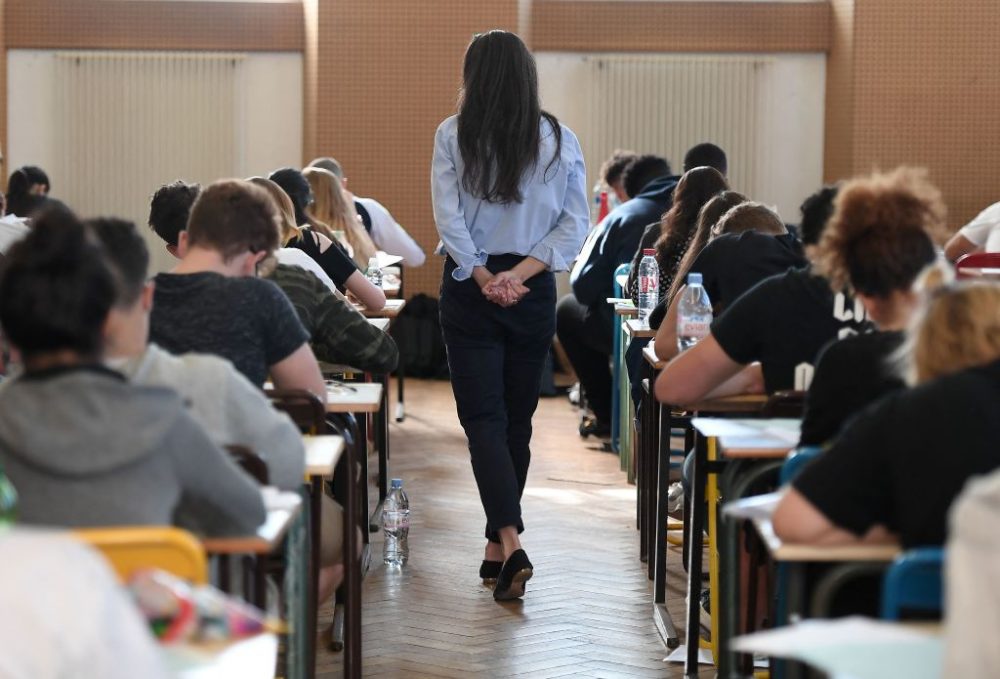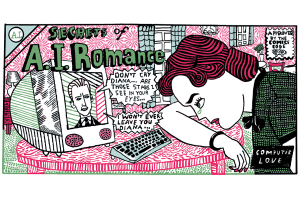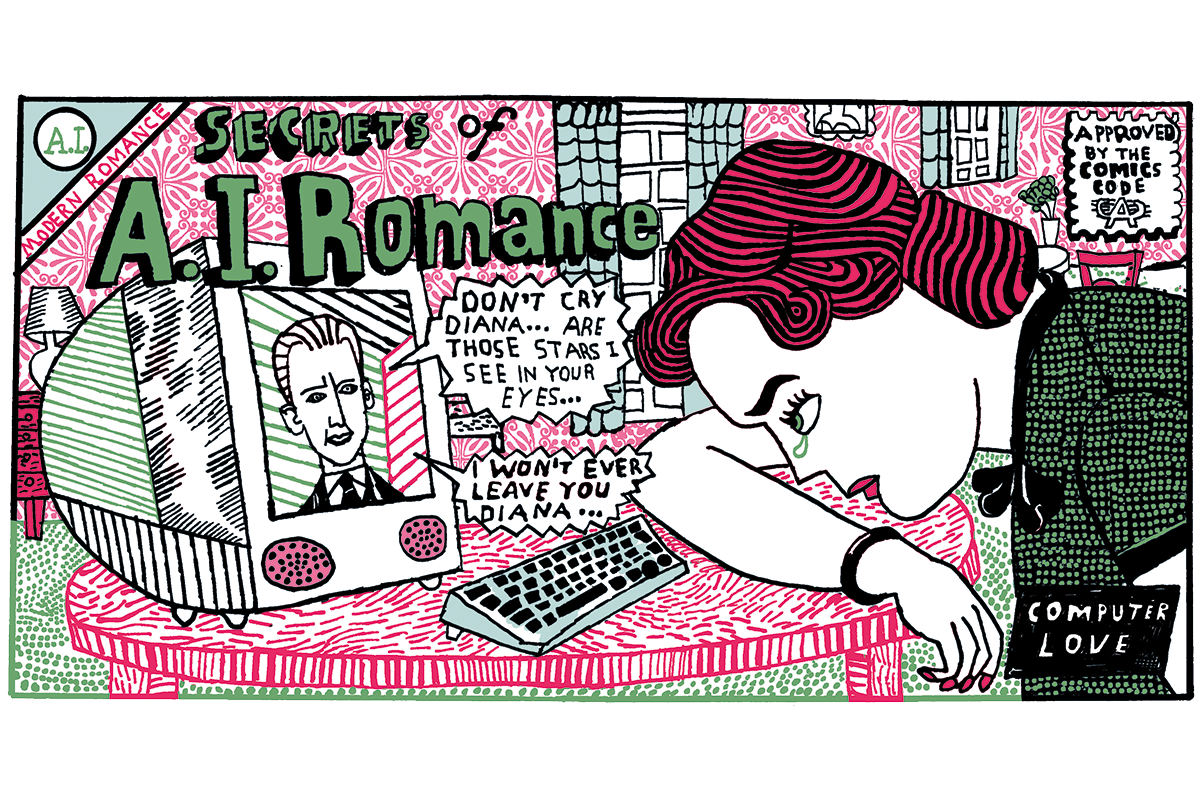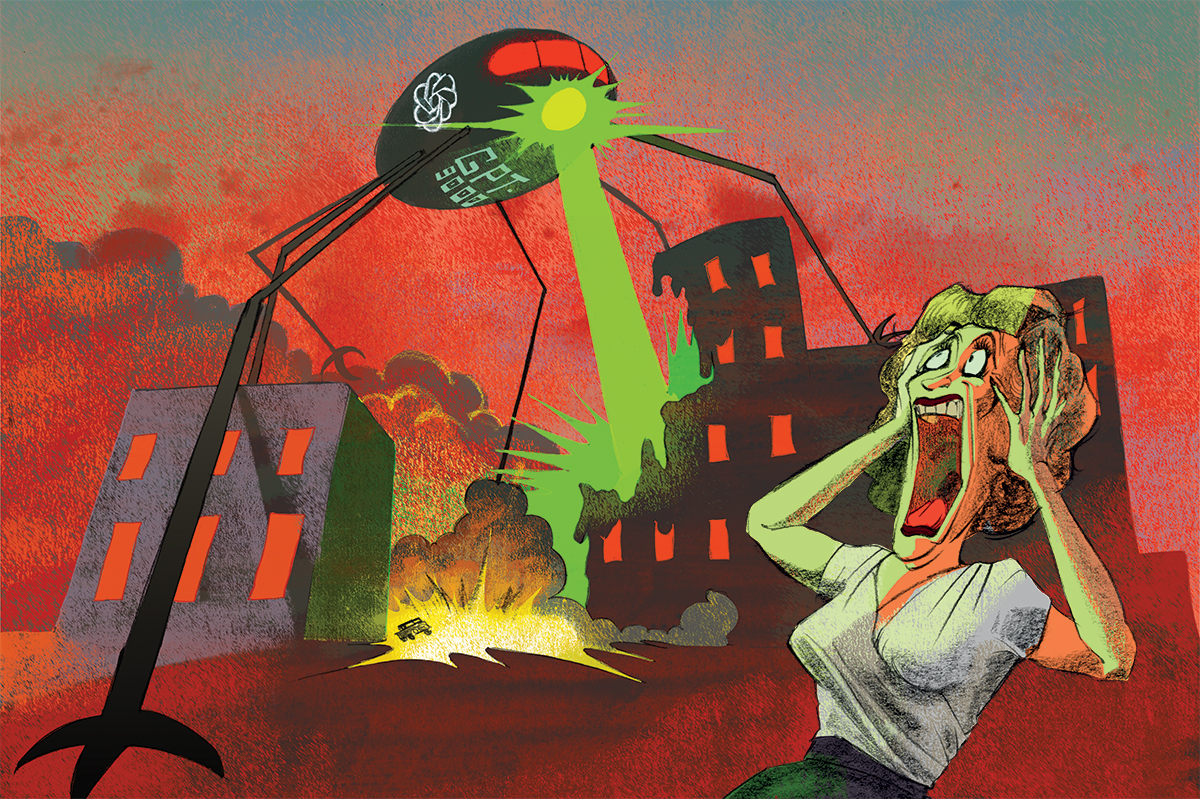College professors like to fondly recall the days before ChatGPT. And, as you listen to them wax eloquent, you could be forgiven for thinking that AI has only just made cheating a widespread problem at American universities.
But, ChatGPT hasn’t sparked a new surge of cheating – that began years ago, during the pandemic, when colleges moved their assignments online. Digital exams were born of necessity, but they have endured because of convenience. And so long as colleges rely on technology to administer exams, students will be one step ahead of their schools.
I graduated college in 2021, after the pandemic, but before ChatGPT debuted. I knew a decent number of classmates who cheated, but that number ballooned over the course of my four years.
And my peers across the country agree. Roughly 60 percent of college graduates in 2021 said classes were easier to cheat compared to four years earlier, citing online assignments as the primary reason why. Students are simply too tech-savvy.
Shortly after graduation, a classmate confided that her online final exam had been easy to cheat. She merely right clicked on the exam, chose “inspect element,” and then looked through the source code for each multiple-choice question. She could see all of the correct answers. A clear path to a perfect score.
I thought that she was kidding, but another friend volunteered the same method, even showing me a homemade “tutorial” video as proof. You can still find similar videos online today. Needless to say, neither of my friends discovered this method on the last day of school.
It’s not just a college problem, either. One of my friends called me last month, immediately after taking the LSAT. In recent years, the LSAT has moved from an in-person exam to one that is administered remotely via “digital” proctors. I’d barely asked my friend how the test went before he volunteered “Man, I could cheat so easily if I wanted to. I didn’t do it – but I know that if I can cheat it, then someone out there is cheating it.”
He explained how the digital proctor, which monitors each test taker via their laptop’s webcam, asked him to pick up his computer and use it to scan the entire room for “illicit materials.” The proctor even asked him to take a mirror (or in this case, my friend’s camera on his phone) and point it at the screen. This allowed the proctor to see the front of the computer, ensuring that nothing was taped to it or otherwise hidden just out of the camera angle.
But my friend pointed out a flaw. Because the proctor uses the laptop’s webcam, it has no way of checking the back of the laptop screen. My friend could’ve simply hidden his phone (or some other “illicit material”) at the back of the laptop when he picked it up and scanned the room. After the scan was done, he could put the laptop down, slide the phone out from the back, and use it on the exam – all out of sight of the proctor’s camera.
I’m grateful that my friend didn’t cheat. Both because I think that cheating is wrong and because I think that the risk is never worth the reward. But he made a compelling point: even the most secure exam in the country, the LSAT, is probably “cheatable” because it’s administered online.
These vulnerabilities get worse when you throw ChatGPT into the mix.
Before generative AI, the only way to cheat on an academic essay was to pay someone to write the assignment for you, or to plagiarize someone else’s work. The former problem will exist for as long as jocks befriend nerds in high school.
The latter problem of plagiarism was solved years ago. Universities use various software programs like Turnitin and iThenticate to detect plagiarized work, even when a student paraphrases instead of copying a work verbatim. I work for a legal journal at school, and we use Turnitin to screen submissions. It’s not perfect, but it’s surprisingly effective at catching cheaters – if they’re copying someone else’s work.
ChatGPT combines both options. Unlike the jock-nerd option, ChatGPT can work in seconds. It’s perfect for someone desperately scrambling to meet a deadline. And unlike plagiarism, ChatGPT produces original material, so it won’t get flagged as someone else’s work.
Some schools have responded with new plagiarism software which claims to identify AI-written text. The software works to some extent, because it’s great at identifying awkward or “robotic” writing.
But such programs have their limits, because they’re ultimately just guessing whether or not a chatbot wrote a passage. For example, I have a friend (let’s call him Kareem) who speaks English as a third language. He’s very sharp, but he uses some words incorrectly and his writing is also quite clunky (understandably).
During Kareem’s first year of grad school, the university’s plagiarism software repeatedly flagged his writing as “written with generative AI.” Thankfully all it took was for Kareem to speak out loud for the administrators to realize their mistake. Kareem laughs about it now, and his English has gotten better since, but he’s a great example of how software to catch “AI-written text” is imperfect.
There is, however, one foolproof way of solving the ChatGPT problem and the broader cheating problem: make students perform their assignments in-person.
In person exams can be on paper or on laptops. Some liberal arts universities, like Hillsdale or the University of Dallas, often require students to take paper exams with pencils in hand. And it’s worked well for them.
Many schools, including my law school (Scalia Law), require students to use programs like ExamSoft when taking tests. It shuts off the internet on the student’s computer, and can block access to computer files until the exam is over. But, really, the key thing that it does is require you to take the exam in person, with a real live human being watching you. What good is blocking ChatGPT on a computer if the student has it with them on their phone?
In most cases, ChatGPT hasn’t made it possible for students to cheat where they couldn’t cheat before. It’s merely helped students to cheat more efficiently. But whether schools prefer to use programs like Examsoft, or Blue Books with pencils, there’s one clear thing that they must do to prevent cheating: asses in seats.


























Leave a Reply